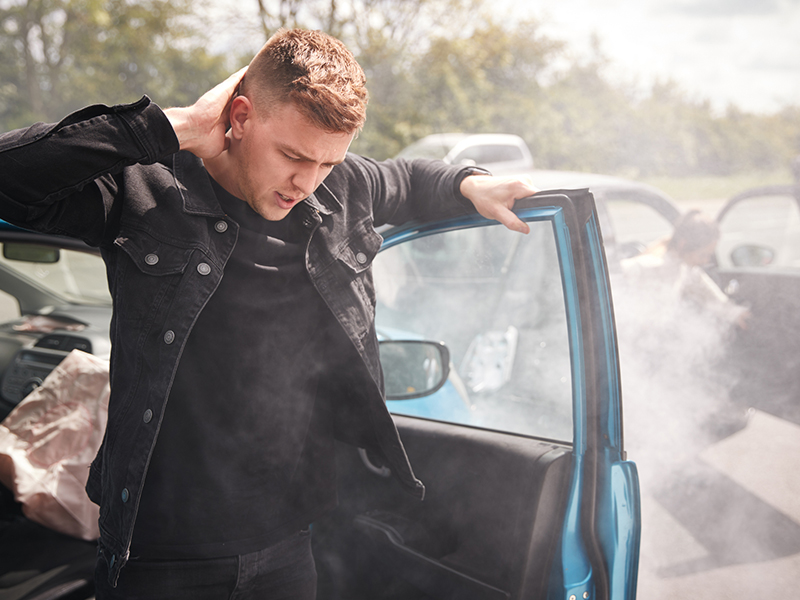Personal injury protection (PIP) is a type of auto coverage that can help pay for your medical bills and passengers’ medical bills if you’re in a vehicular accident, regardless of fault. In some states, PIP can even offer coverage if you’re injured by a vehicle as a pedestrian, cyclist, or passenger involved in an accident. Also known as no-fault insurance, this coverage is required in certain states and optional or not offered in others. Learn more about PIP coverage below.
Who Does Personal Injury Protection Cover?
PIP coverage can help pay medical expenses for you and anyone covered on your policy if you’re in a vehicular accident; coverage can also extend to any passengers in the vehicle at the time of the accident. Depending on your location, your PIP coverage may also help provide non-medical benefits such as wage replacement and reimbursement for reasonable substitute services expenses (e.g., grocery delivery or house cleaning if your injury keeps you from performing these services on your own). Review your policy carefully or speak with an insurance agent for more information about who may be covered under your PIP policy.
What Does Personal Injury Protection Cover?
The details of your policy may vary with your location and insurance provider. A standard PIP policy may help pay for the following:
- Medical bills if you or a passenger requires medical care following a vehicular accident
- Lost wages if you or your passengers are prevented or inhibited from working after an auto incident
- Disability and rehab costs if you or your passengers are left with a disability or require rehab after a vehicle incident
- Substitute services if you or your passengers are prevented from performing previous household duties, such as child care and house cleaning, in the aftermath of a vehicular accident
- Funeral expenses if you or your passengers are killed in an auto accident. Your family members may accept this benefit on your behalf.
In some states, your PIP policy may pay for medical bills even if you aren’t in a vehicle. For example, if you’re hit by a car while walking or riding your bike. Some states may also allow your personal PIP policy to provide coverage for injuries you’ve sustained as a passenger in another driver’s vehicle following an accident.
Please note PIP coverage varies widely due to state regulations and requirements. We can work with you to determine what coverage is afforded to you based on your location.
Is Personal Injury Protection Required?
PIP coverage is not offered or available in every state. It is generally only available in certain no-fault auto insurance states. What’s more, even if you live in a no-fault state, you may not be required to carry PIP coverage. While some states require drivers to carry minimum amounts, some may only require that your insurer offers you PIP but allows you to waive the right to that coverage. But, you can work with CoverLink Insurance to learn more about your state’s auto insurance laws and determine whether you may be required to carry this type of coverage. Contact CoverLink Insurance today, we can provide you with a variety of auto resources and make sure you have the right types of coverage.
